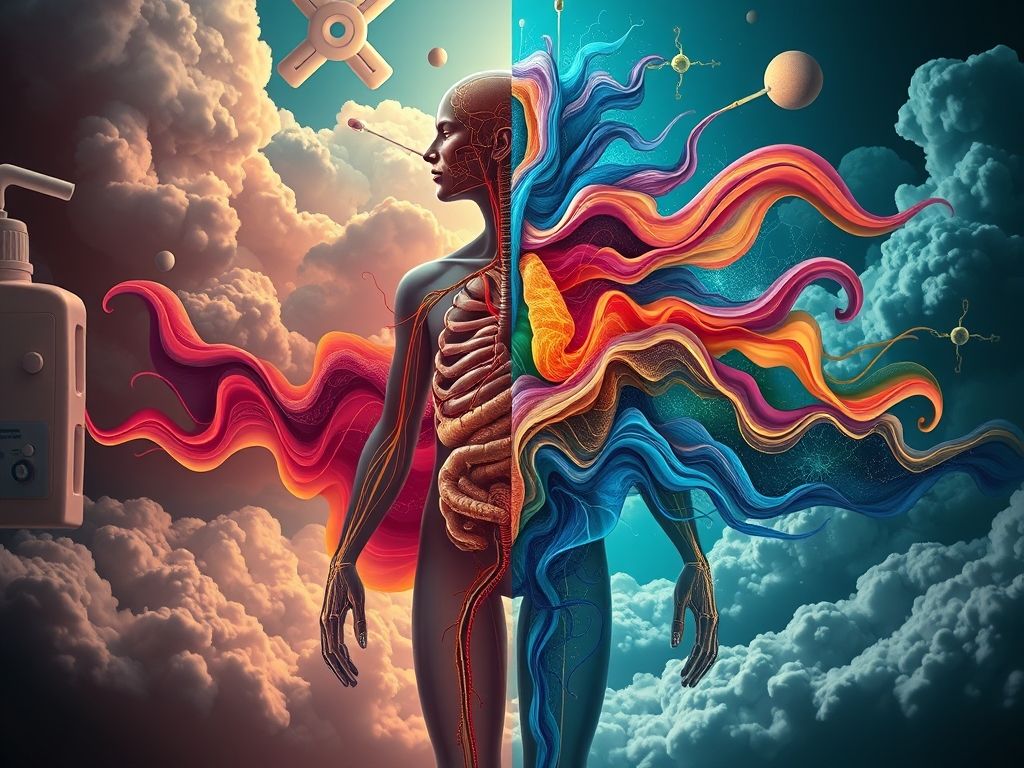The body screams what the soul keeps silent: how your emotions may be making you sick
Emotional state affects physical health more deeply than we used to believe. Emotions such as anxiety, sadness, anger, or constant fear don’t just alter your mood—they directly impact how your body functions. In this article, we’ll explore how your emotional state can trigger or worsen physical illnesses, how to recognize the warning signs, and what to do to restore balance between mind and body.
1. What is emotional state and why does it matter so much?
Emotional state is the set of feelings and internal reactions we experience in response to daily situations. These are shaped by past experiences, beliefs, social environment, and specific contexts. When emotions become chronic or intense, they disrupt essential biological processes like sleep, immunity, the nervous system, and metabolism.
Scientifically, it’s known that prolonged negative emotions increase the production of stress hormones (like cortisol), which can damage vital organs and systems when kept at high levels.
Reference: McEwen, B. S. (2006). Protective and damaging effects of stress mediators: central role of the brain. Dialogues in Clinical Neuroscience, 8(4), 367–381.
2. How emotional state affects physical health
- Immune system: Prolonged sadness or stress reduces the body’s defense, increasing vulnerability to infections and slowing healing.
- Heart and circulation: Stress and anger are linked to high blood pressure, heart attacks, and strokes.
- Digestive system: Intense emotions disrupt the gut, causing gastritis, reflux, constipation, or diarrhea.
- Sleep: Anxiety and worry interfere with restorative sleep, leading to fatigue and poor focus.
- Muscles: Repressed emotions cause chronic muscle tension, back pain, neck stiffness, and jaw clenching.
Reference: American Psychological Association. (2018). Stress effects on the body. https://www.apa.org
3. The body speaks: physical symptoms of repressed emotions
We don’t always realize when we’re emotionally unbalanced. But the body sends clear signals:
- Recurring headaches
- Gastrointestinal issues without a clear medical cause
- Constant fatigue
- Dizziness and palpitations
- Asthma or skin conditions worsened by stress
- Hair loss and weak nails
These are signs that the emotional state affects physical health more than it seems.
4. Emotions and specific diseases: when the mind makes the body ill
Psychosomatic medicine recognizes a direct link between emotional states and physical illnesses. Examples:
- Chronic anxiety: insomnia, tachycardia, hypertension
- Prolonged grief or deep sadness: lowered immunity, chest pains
- Repressed anger: gastritis, ulcers, cramps, migraines
- Persistent fear: irritable bowel syndrome, bladder issues, muscle tension
- Guilt and shame: unexplained body aches, eating disorders
Reference: Taylor, G. J. (2000). Psychosomatic medicine and contemporary psychoanalysis. Journal of the American Academy of Psychoanalysis, 28(4), 591–604.
5. Studies that prove the mind-body connection
Neuroscience and integrative medicine have increasingly proven that emotional state affects physical health.
A study published in Psychosomatic Medicine showed that patients with depression had chronic inflammation in the body (Slavich & Irwin, 2014). Another study from Harvard Medical School found that people with high stress levels were more likely to develop cardiovascular disease (Kubzansky et al., 2007).
References:
- Slavich, G. M., & Irwin, M. R. (2014). From stress to inflammation and major depressive disorder: a social signal transduction theory of depression. Psychological Bulletin, 140(3), 774.
- Kubzansky, L. D., et al. (2007). The relationship between psychological stress and cardiovascular disease. Current Cardiovascular Risk Reports, 1(1), 25–30.
6. How to rebalance emotions and body: practical paths
- Practice self-awareness: Recognizing feelings is the first step to processing them.
- Try therapy: Psychotherapy helps uncover and resolve emotional blocks.
- Exercise regularly: Physical activity releases endorphins, boosting mood.
- Sleep well: Quality sleep regulates mood, memory, and immunity.
- Meditate and breathe consciously: Simple breathing exercises lower stress levels.
- Eat wisely: The gut is also an emotional center. Balanced nutrition supports mental stability.
Reference: Harvard Health Publishing. (2020). Mindfulness meditation may ease anxiety, mental stress. https://www.health.harvard.edu
7. When to seek professional help
If you’ve been experiencing persistent physical symptoms with no clear medical cause, or if you’re living in a constant emotional struggle, it’s time to consult a psychologist or psychiatrist. Professional help is essential to break the cycle of emotional distress and prevent serious illness.
Conclusion: taking care of your mind is taking care of your body
Emotional state affects physical health in undeniable ways. What you feel, think, and carry emotionally silently shapes your body—for better or worse. Listening to the signs your body gives you is a wise act. Caring for your mental health is an investment in longevity.
Start small: allow yourself to feel, talk about your pain, seek support. Your body will thank you.
Did you like this article? Share it with someone who needs to understand how emotions might be impacting their health. Leave a comment below: have you experienced something like this?
Subscribe to our newsletter and receive exclusive content on physical and emotional well-being straight to your inbox.

